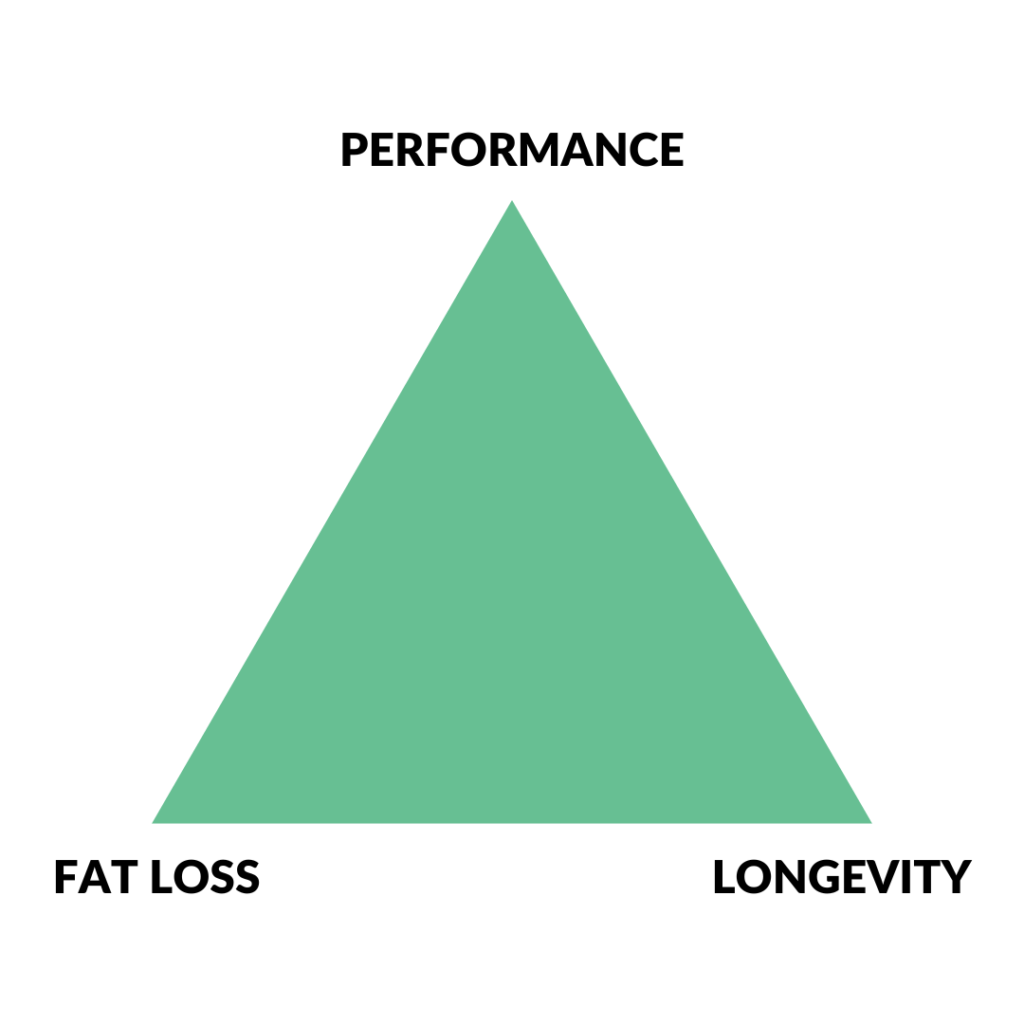Nutrition can be… complicated. It’s probably not as complicated as we often pretend it to be, but it’s complicated all the same. With all of the nonsense in the nutrition space, it can be difficult to establish good, clear goals.
On one side, we have the people who find it acceptable to lie in order to sell you their latest supplement – even when the person in question built his body by injecting tens of thousands of dollars of steroids while lying about it.
We also don’t know a lot about the human body – and we certainly don’t know everything about what fuels it. The human metabolism is incredibly complicated and we’re discovering new things every year.
There’s also a wide array of individual variance.
Some people choose to be vegans for animal welfare reasons. Great.
Some people choose to be carnivores because they claim it’s cured their autoimmune conditions. Great.
Some people choose to consume nothing but Soylent. Good for them.
Some people even claim to survive on nothing but air and sunlight. And we call those people liars.
I’ve met multiple people who thrive on the first three strategies. Even though I don’t personally ascribe to any of them, it would be inappropriate for me to tell someone else to change their diet if it’s working for them.
That’s why I try to separate myself from dietary dogmas.
If you can prove something to me through well done scientific studies, then I’m all about it.
If you can show me a few thousand pieces of anecdotal evidence that seem to point towards a correlation, I’ll consider that as well.
It would be hubris to claim a full understanding of human nutrition.
I’m honestly fairly flexible when it comes to HOW you want to get your nutritional needs – but there are facts about human physiology we can’t ignore.
Even if we ignore the grifters and the people’s personal preferences, nutrition can still be difficult – and at that point it usually comes down to goals.
Depending on your goals, you might have to change how you eat. Furthermore, if you have more than one goal – and I’m willing to bet you do – you will have to ignore some goals to achieve others.
I’d also like everyone to remember – you’re an adult. You get to choose what you want to do and those choices have potential consequences. For example, my choice to train for a 50 mile race in 12 months resulted in fat gain and muscle loss on my upper body. I know that was likely going in and decided to make that trade. I’m not happy about it, but I’m dealing with it.
Identifying Your Goals
When it comes to food and training, you can target 3 different goals.
1 – Performance (ie – lift more weight; build more muscle; run better)
2 – Fat Loss (ie – what most people mean when they say “weight loss”)
3 – Longevity (ie – live a long time)
Of course we can aim towards smaller, more specific fitness goals, but all of them fit into one of those 3 categories. If you think I’m wrong, let me know. I’m more than happy to adjust this perspective.
Now, let’s put those three goals on the three different vertices of a triangle.

You can be anywhere in that triangle, but you can’t be at more place than one at the same time.
Meaning – if you want to expedite progress towards any of these three goals, you should probably choose one and stick to it for a little while.
You can target two or three of these at the same time. You just have to accept that your progress will be slower – sometimes much slower.
Most people would do better to prioritize one of these goals at a time in order to see real progress.
Why?
Simple.
Performance all but requires caloric maintenance or even a slight surplus.
Fat loss requires a caloric deficit or negative energy balance.
Longevity requires caloric maintenance or a slight deficit.
While there is some overlap here, it’s very slight.
Unless you’re new to training, you will struggle to improve performance and lose fat at the same time.
You will be much better off dedicating a few months to performance and building muscle before you try to lose fat.
That’s why the first thing I do with anybody is get very clear on goals.
Have a six-pack and want to optimize performance? You will likely lose that six-pack unless you won the genetic lottery. If you’re not okay with that, then we should reassess your goals.
If you tell me your goal is to get a lot stronger, yet you’re secretly hoping that you’ll also lose 20 pounds… that’s just going to lead to disappointment. I’m going to be helping you fuel for strength and you’re going to wonder why the scale isn’t doing what you want…
So before you do anything with your nutrition… figure out your goals.
All of them.
You’re allowed to have as many as you want.
Next figure out which one matters most to you right now.
Then commit to eating in a way that actually supports that goal for at least the next 3 months.
Now – and here’s the really hard part – ignore your other goals like your life depends on it. Some of your goals will be in direct, irreconcilable conflict with one another. If you don’t actively choose to ignore the distractors, you will never achieve the things that truly matter.
Be honest about what you want the most.
Commit to pursuing it for a few months.
Ignore all the other stuff you want that conflicts with your primary goal.


Thank you. It is extremely hard to try not to want everything at once when you are a beginner!
I think it’s the hardest part for a lot of us – beginner or not…
Comments are closed.